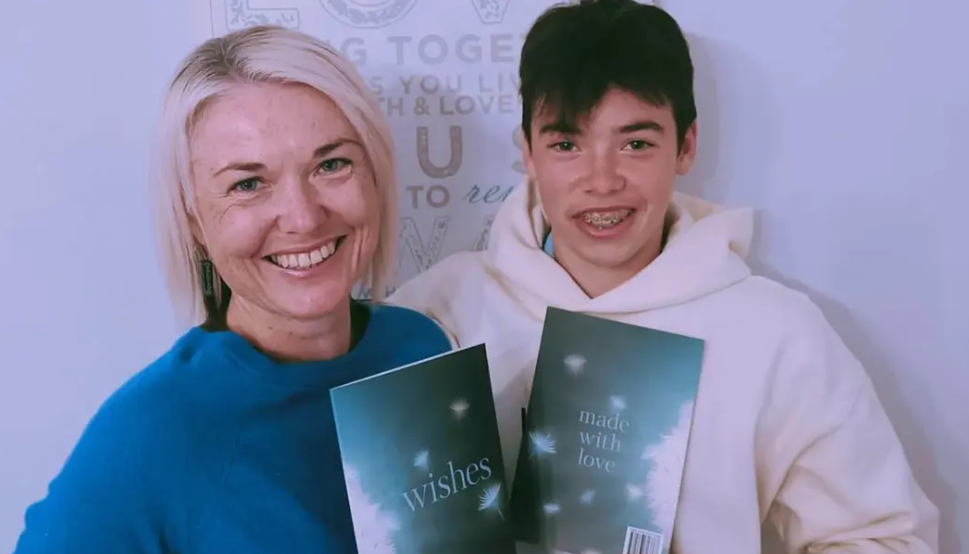
Talking about what we want after we die is a difficult conversation for many, and a Taupō mum and her 15-year-old son have come up with an idea to make the whole process easier.
Suzanne Stevenson and her son Quinn have created a list of wishes, in the form of a book, that can sit aside a will and give families a clearer idea of the deceased’s preferences before it is too late.
The wishes book goes into the details of what a person would wish for their funeral, things a legal document like a will wouldn’t cover, Stevenson told RNZ’s Saturday Morning programme.
“Once you've gone through the passing of someone that's died quite suddenly, you don't know what to do, you're in that fight or flight mode, and the will doesn't give you any information about funeral arrangements and things like that.”
As well as funeral arrangements the book can also document where family treasures will go, anything that someone might like to be passed on through the generations, she says.
Two sudden deaths in her own family, inspired the idea, she says.
“My father died suddenly, and he had always joked and talked about what he wanted. A song would come on the radio and he'd go, ‘I like that song, I want it played at my funeral.
“And he was a big advocate for wanting to be an organ donor. So he passed really suddenly of an asthma attack, and we knew what he wanted because he'd talked about it”.
When her father-in -aw died suddenly the family had much less idea of his wishes, she says.
“There were question marks about if he was going to be cremated, where he was going to be scattered, the funeral itself, there wasn't really much clarity around it.”
The book takes the form of a worksheet, she says.
“So, it's got questions: where would you like your funeral or celebration of life to be held? Are there any songs or poems that you would like?
"It details what you'd like for your funeral first.”
The idea is the family can then pass this to a funeral director, she says.
“Once you've got through the funeral, then you can start looking at family treasures, if there was like a teacup or something that you want your cousin to have, because it reminds you of a great aunt or if there's any artwork.”
While not legally binding, she hopes because it would be written in the deceased’s handwriting there would be little chance of families contesting it.
She and Quinn have also created a board game The Wishes End Game.
“It’s for people who want to have a conversation about death with family members but don't know how to start it. So, it's supposed to be fun. It's supposed to get people laughing. You talk a lot about what you don’t want.
“And what I found is while you're laughing about things that you don't want, you talk about things that you do want.”













